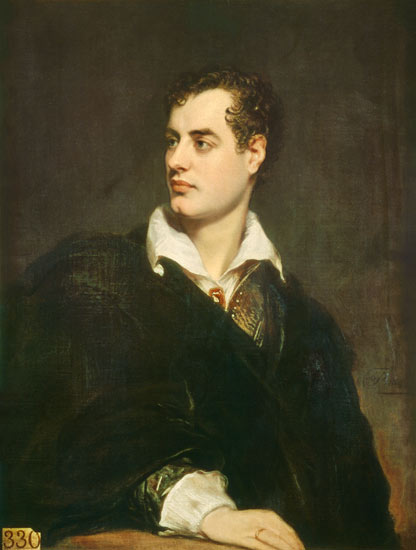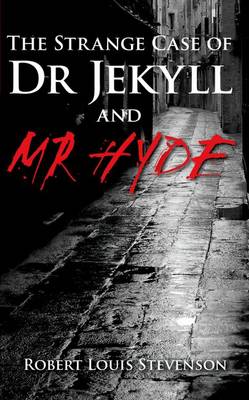Thursday, 31 December 2020
Sunday, 27 December 2020
GIGI PROIETTI AND EDMUND KEAN
Saturday, 26 December 2020
Friday, 25 December 2020
THE QUEEN'S CHRISTMAS SPEECH
The
Queen told the nation of the need for "life to go on" in her
Christmas Day broadcast to millions. In a touching message, after such a
terrible year, Her Majesty spoke of the importance of getting through the
Coronavirus pandemic. She described how she had been “inspired” by
the tens of thousands of Brits who had volunteered to help during the
crisis. And she paid tribute to the NHS staff who risked their own lives
to care for Covid-19 victims saying we all owed them a “debt of
gratitude.” Read here.
Thursday, 24 December 2020
Tuesday, 22 December 2020
Wednesday, 16 December 2020
CELEBRATING THE BIRTH OF JANE AUSTEN
Jane Austen was born on 16 December 1775, the seventh
of eight children of a clergyman in a country village in Hampshire, England. Read here.
Some beautiful articles about our beloved novelist can be read here and here.
"We read Jane Austen because she seems to know us better than we know ourselves, and she seems to know us so intimately for the simple reason that she helped determine who we are both as readers and as human beings." Harold Bloom
Friday, 11 December 2020
GLOBAL ENGLISH - 3^C LINGUISTICO
More people speak Spanish than English as their first language. Nearly three times as many speak Mandarin Chinese in their family homes. Yet few would dispute that English is the leading world language. Read here.
Wednesday, 9 December 2020
LORD BYRON, MANFRED AND THE BYRONIC HERO
"We are all the fools of time and terror: Days steal on us and steal from us; yet we live, loathing our life, and dreading still to die.”
Manfred is a dramatic poem written in 1816–1817 by Lord Byron. It contains supernatural elements, in keeping with the popularity of the ghost story in England at the time. It is a typical example of a Romantic closet drama. It was adapted musically by Robert Schumann and later by Pyotr Tchaikovsky. Friedrich Nietzsche was impressed by the poem's depiction of a super-human being, and wrote some music for it.
To say that Manfred is a Byronic hero in the Promethean mold is not new: not only the text of Manfred, but also Byron himself, as well as literary critics from his time until now, suggest it. Read here.
Here you can find a detailed analysis of the figure of the Byronic hero.
Tuesday, 8 December 2020
LORD BYRON - 5^C LINGUISTICO

Monday, 7 December 2020
THE BYRONIC HERO

Tuesday, 1 December 2020
GREAT EXPECTATIONS
Monday, 30 November 2020
WILLIAM BLAKE'S ARTISTIC TALENT AND PROFOUND POETRY
https://www.artsy.net/article/artsy-editorial-5-things-you-didn-t-know-about-william-blake
https://www.theartstory.org/artist/blake-william/artworks/
https://www.theguardian.com/culture/2014/nov/21/the-10-best-works-by-william-blake
https://artuk.org/discover/stories/artist-in-focus-william-blake
Sunday, 29 November 2020
GIACOMO LEOPARDI - 5^C LINGUISTICO
Leopardi is considered the greatest Italian poet of the 19th century and one of the most important figures in the literature of the world, as well as one of the most renowned Romantics; his constant reflection on existence and on the human condition - of sensuous and materialist inspiration - has also earned him a reputation as a deep philosopher. He is widely seen as one of the most radical and challenging thinkers of the 19th century, but generally compared to his older contemporary, Alessandro Manzoni, despite expressing completely opposite positions. Although he lived in a secluded town in the conservative Papal States, he came into contact with the main ideas of the Enlightenment, and through his own literary evolution, created a outstanding poetic work, related to the Romantic era. Read here.
His themes are mutability, landscape, love; his attitude, one of unflinching realism in the face of unavoidable human loss. But the manners of the poems are an amalgam of philosophical toughness and the lyrically bittersweet. In a way more pure and distilled than most others in the Western tradition, his poems are truly what Matthew Arnold asked all poetry to be, a “criticism of life.”
Leopardi was a contemporary of the great English
Romantic poets such as Shelley, Keats and Byron who lived in Italy, though he never had the
chance to meet them. Read here.
Friday, 27 November 2020
Thursday, 26 November 2020
Monday, 23 November 2020
Thursday, 19 November 2020
SHAKESPEARE'S DICTIONARY
https://www.bellenglish.com/blog/shakespeares-influence-language-quiz/
https://myblog-inplainenglish.blogspot.com/2019/10/the-english-language-owes-great-debt-to.html
http://www.projectink.com.sg/shakespeares-influence-in-our-everyday-speech/
https://www.nosweatshakespeare.com/resources/words-shakespeare-invented/
http://www.shakespeare-online.com/biography/wordsinvented.html
Saturday, 14 November 2020
Tuesday, 10 November 2020
WHAT IS ETYMOLOGY?
Sunday, 8 November 2020
JOE BIDEN ELECTED 46TH PRESIDENT OF THE UNITED STATES
Sunday, 1 November 2020
OGNISSANTI HOLIDAY ON 1ST NOVEMBER
NOVEMBER
Saturday, 31 October 2020
SEAN CONNERY DIES AGED 90
The Oscar-winning Scottish actor Sean Connery was best known for his portrayal of James Bond, being the first to bring the role to the big screen and appearing in seven of the spy thrillers. He was knighted by Queen Elizabeth II in 2000. Read here.
Wednesday, 21 October 2020
SAMUEL TAYLOR COLERIDGE
English lyrical poet, critic, and philosopher Samuel Taylor Coleridge was born on 21 October 1772. His Lyrical Ballads, written with William Wordsworth, heralded the English Romantic movement, and his Biographia Literaria (1817) is the most significant work of general literary criticism produced in the English Romantic period. Read here.
Here you can download a PDF
presentation.
Saturday, 3 October 2020
NATURE IS EVERYWHERE
How do you define "nature?" If we define it as that which is untouched by humans, then we won't have any left, says environmental writer Emma Marris. She urges us to consider a new definition of nature - one that includes not only pristine (=unspoiled) wilderness, but also the untended patches of plants growing in urban spaces - and encourages us to bring our children out to touch and tinker (=play) with it, so that one day they might love and protect it. Here you can listen to her TED Talk.
Thursday, 1 October 2020
TONI MORRISON
The author Toni Morrison was the first African-American woman to win the Nobel Prize in Literature and best known for her nuanced discussion of race in America. Read here.
Wednesday, 30 September 2020
Sunday, 27 September 2020
Tuesday, 15 September 2020
SHAKESPEARE'S SISTER
Virginia Woolf often questioned why men had always had
power, influence, wealth, and reputation, while women had nothing but children.
She believed that there would be female Shakespeare in the future only if women
found the first two keys to freedom: independent incomes (=money) and “rooms of their
own” (=privacy), a metaphor for women having access to their own private space. When A Room of One's Own was first published in 1929, it was considered
revolutionary. Most people considered
women less intelligent than men, they did not think about women's
freedom and certainly no one was writing about it, let alone as convincingly as
Virginia Woolf. Her essay became a classic in the movement toward equality.
Even today it is hardly dated, for the reason that there are still some men
(and women) who suppose that men are “the superior sex”.
If women were equal to men, people asked, why had none
of them produced great literature like Shakespeare's? Virginia Woolf
replied that this lack of achievement had nothing to with innate ability and
everything to do with women's lack of opportunity.
To illustrate
this, Virginia Woolf imagined a Judith Shakespeare,
William's sister, going to London to make her fortune as a playwright.
Unfortunately, she was regarded as a sex object, so rather than being taken
seriously as a writer, she was lied to and seduced, she became pregnant and
eventually committed suicide.
Monday, 14 September 2020
Sunday, 6 September 2020
IMPROVING YOUR ENGLISH

Here you can read a very interesting blog post!
Tuesday, 1 September 2020
SEPTEMBER

Monday, 31 August 2020
REMEMBERING DIANA, PRINCESS OF WALES
Sunday, 23 August 2020
BARACK OBAMA GIVES BITING CRITIQUE OF TRUMP’S PRESIDENCY

Saturday, 25 July 2020
ALEXANDRIA OCASIO-CORTEZ'S SPEECH ABOUT MISOGYNY

Friday, 24 July 2020
ROBERT LOUIS STEVENSON’S THE STRANGE CASE OF DR JEKYLL AND MR HYDE

Sunday, 19 July 2020
THE OUTLANDER SERIES












































